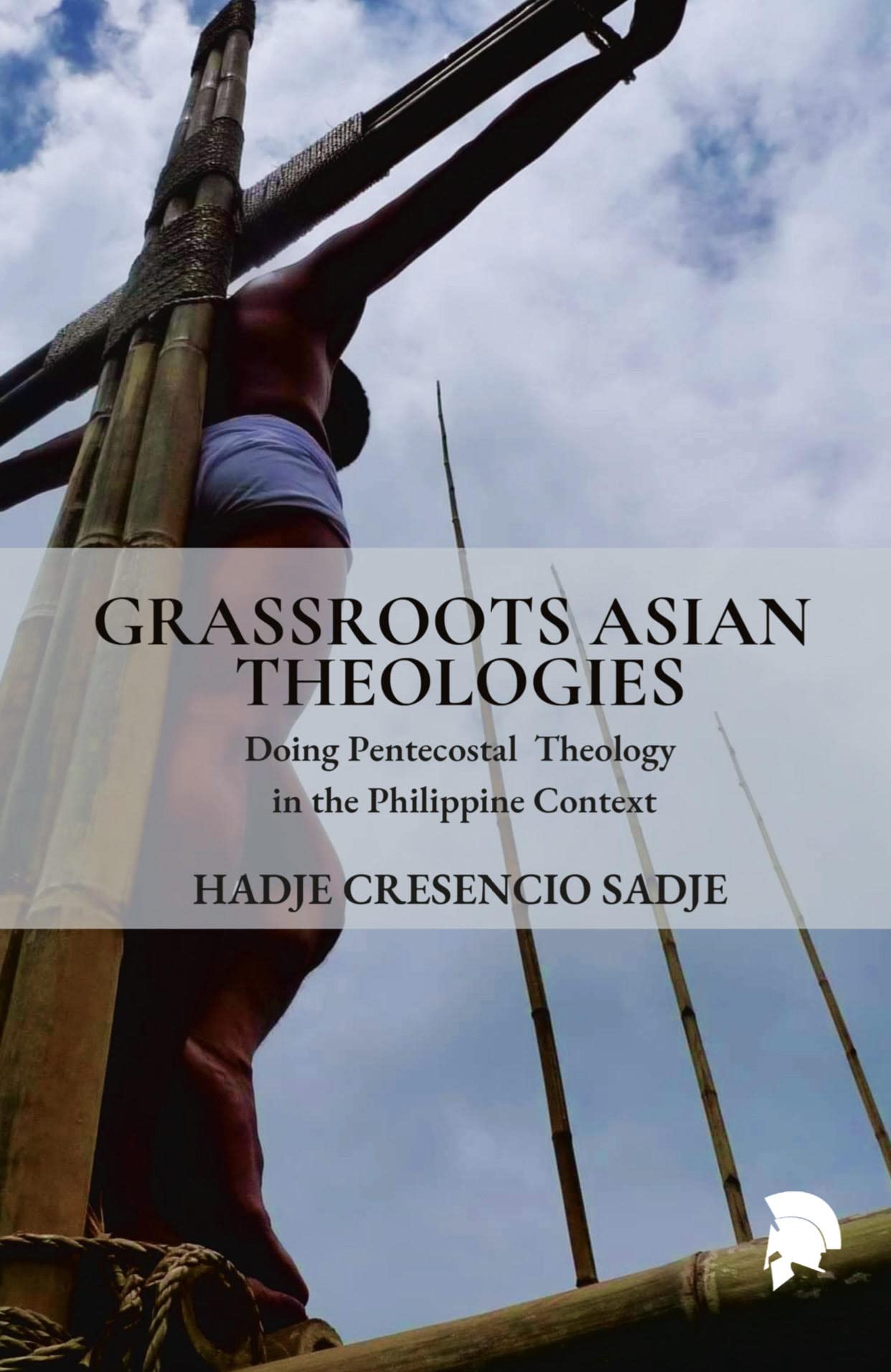Hadje Cresencio Sadje: Grassroots Asian Theologies
 Hadje Cresencio Sadje, Grassroots Asian Theologies: Doing Pentecostal Theology in the Philippine Context (Kalamazoo, MI: Ekyprosis Press, 2022), 127 pages, ISBN 9798985592627.
Hadje Cresencio Sadje, Grassroots Asian Theologies: Doing Pentecostal Theology in the Philippine Context (Kalamazoo, MI: Ekyprosis Press, 2022), 127 pages, ISBN 9798985592627.
Hadje Cresencio Sadje, a Filipino scholar doing Ph. D. studies at the University of Vienna, contributes to global contextual methodologies through his monograph, Grassroots Asian Theologies: Doing Pentecostal Theology in the Philippine Context. Sadje attempts to integrate Liberation theology and Pentecostal theology in the Philippine context (10), noting that both recognize grounded realities and contextual experiences as loci for theologizing. He agrees with Asian Pentecostal theologian Simon Chan, whose seminal book, Grassroots Asian Theology, argued for the ecclesial experience in theologizing (12). Whereas Chan offered a Pan-Asian approach, Sadje particularizes his study within the Filipino context. He does this by analyzing Filipino theologies, both Pentecostal and Liberationists, to draw out an alternate theological method for developing a holistic grassroots Filipino theology.
In the book, Sadje constructs his alternate theological method by offering an exposition that spans four chapters. In chapter one, he discusses Chan’s methodological propositions for developing Asian grassroots theology. He notes Chan’s critique of elite theologies vis-à-vis Pentecostal grassroots theologies (11). As Sadje points out, Chan argues for replacing elite theologies (not grounded on the grassroots lived realities) with the ecclesial experience (derived from the lived realities of both theologians and laity).
Sadje does a fair job of promoting the move toward contextualization and proposing a framework for constructing theologies in the Filipino context.
In chapter three, Sadje reviews Filipino Liberation theology, especially Eleazar Fernandez’s magnum opus Towards a Theology of Struggle, which offers a theological reading of the Philippines considering its colonial past and socio-political challenges (64-65). As in the previous chapter, Sadje compares Chan’s ecclesial experience with Fernandez’s hermeneutic of the underside (67-69). Interestingly, Chan and Fernandez agree that “theologizing is a community affair” (67). Fernandez, however, specifies the interlocuters of theologizing as “the poor, marginalized, and oppressed Filipino people” (69).
Finally, in chapter four, Sadje converges ideas deduced from previous chapters to offer “alternative guidelines for doing grassroots Asian theologies” (75). After explaining the challenges in doing Filipino theology, he then adopts the Critical Asian Principle (CAP) espoused by the Associate for Theological Education in Southeast Asia (ATESEA) (78). Despite criticisms against the CAP, Sadje affirms its continuing relevance in developing holistic grassroots theologies. Moreover, he offers four considerations in developing Filipino grassroots theology: the necessity of contextualization, political and economic engagement, ecological/environmental response, and ecumenical-interreligious engagement (90).
In the final analysis, Sadje points to the overlap between Liberation and Pentecostal theology, commenting that both lean toward grassroots theologizing to develop a living theology. Indeed, local theologies today generally lean towards theologizing with grounded realities in mind. For Sadje, Chan’s ecclesial experience, Ma’s Pentecostal method, Fernandez’ theology of struggle, and ATESEA’s Critical Asian Principle, when cumulatively considered, may lead to deeper theological insights in the Filipino context (90-91).
Sadje’s expositions are insightful. He does a fair job of promoting the move toward contextualization and proposing a framework for constructing theologies in the Filipino context. As a way forward, I encourage sufficient consideration of Pentecostal distinctives in his guidelines. To be considered a successful integration of Liberationist and Pentecostal systems, the inclusion of Pentecostalism’s trialectic (Spirit-Scripture-Community) in biblical interpretation can be added into the loci theologici. Sadje can delve deeper into this oft-discussed framework as he attempts to integrate both systems into a holistic grassroots method.
Despite the above notations, Sadje’s work contributes significantly to developing methodologies for Filipino theologizing. His monograph helps to fill theological lacuna in Asia and urges Filipino Pentecostals to be much more involved in public theology.
Reviewed by Lora Angeline E. Timenia


